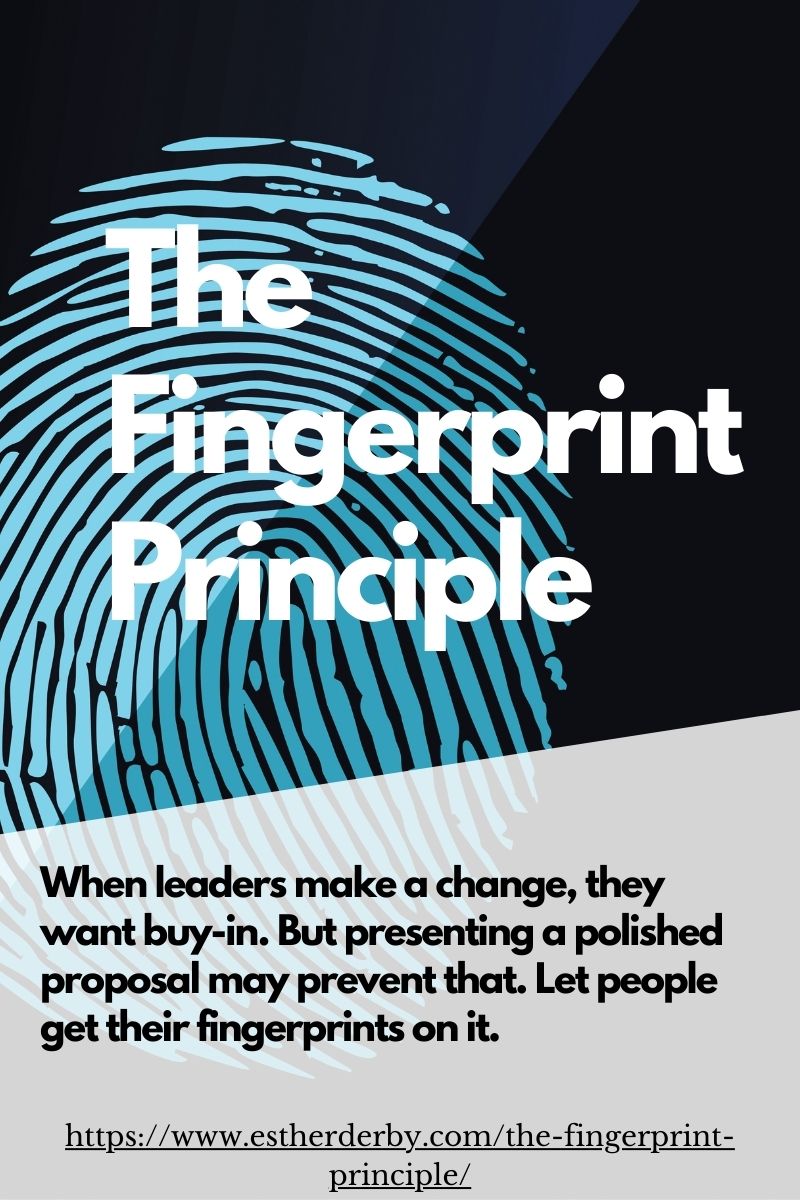A group of managers in organizations adopting agile methods pondered who should fill new agile roles. Why can’t the managers become ScrumMasters, they asked.
In my experience, that’s a risky road.
However, one manager was adamant. After all, the managers already knew people’s strengths and weaknesses. They knew the domain, and the organization. So, he reasoned, the managers were already equipped to tell people what to do.
Coaches and Scrum Masters rarely tell people what to do. Usually, they work by very different means. They model, coach, influence, facilitate, experiment. Their authority comes from expertise and relationships, not from positional power.
Here’s what I look for in an agile coach/ ScrumMaster in a situation like this.
Experience with Agile Methods
For companies steeped in serial life cycles moving towards agile methods is not trivial. Adopting a few engineering practices or using time boxes isn’t sufficient. Succeeding with agile does require engineering practices and time boxes. But the real change happens between peoples ears. It’s a shift in thinking–for development team and managers. Book learning and training is helpful. Yet, it is not a substitute for experience working in an agile way. Don’t under-estimate the value of an experienced guide.
Coaches need to know the why, when, and how of agile methods. They need to understand how practices fit together. People may need to adapt methods to local conditions. But adaptation without understanding brings risk. I’ve seen teams and companies “adapt” themselves right back into their original mess. An agile coach needs to be able to think through what adjustments maintain the essence of a practice, and which adaptations sustain the current pattern.
Coaching and Team Skills
CoAn agile coach should know something about coaching. That means supporting people as learn skills through practice and feedback. It means helping people think through issues and see new alternatives. It may mean providing answers, facilitating, or acting as a mirror. If often means challenging people to think about the way they are thinking. It does not usually include life coaching.
Understanding of teams and team dynamics is another often overlooked skill. The coach needs to understand something about how people behave in goal-oriented social units. He needs to know the foundations and enabling conditions that allow teams to form and thrive. He needs to recognize when problems are related to the design of the team, when they are system patterns, and when there are individual problems.
Interpersonal and collaboration skills. Coaching is about enabling other people to be more effective. The zeroth step is to make contact with people. If a person cannot do that, he won’t be able to build relationships and trust. I do sometimes meet coaches who are all about “me.” Doesn’t work. Coaches need to be able to work with others, share credit, and let others shine.
Influencing Skills
Influence and organizational smarts. It is silly to expect a ScrumMaster to remove significant organizational impediments and “drive” organizational change. That’s often the expectation, though. However, coaches and ScrumMasters need to be savvy about the organization and to have influencing skills. These are critical for engaging managers to removing impediments.
Avoid Conflicting Roles
Coaching is tricky when a person also has the responsibility to rate and rank individuals. Coaching requires openness and trust. When people fear that revealing lack of knowledge or skill will show up on their annual review, they are less likely to ask for help. I know of several companies where managers are now “coaches” (and managers). Its confusing for the team members. They don’t know who they are talking to–the person who helps, or the the one who will hand out a rating at year end.
If you want empowered teams, you need to change the dynamic between managers and teams. A new title will not change the dynamic.
Some managers do have all the qualities and skills to make the transition. Some teams have the gumption to call slips back into command and control. Even when the mangers is willing and capable of changing the way he interacts with a team, it will take time for the new pattern of interaction to take hold.
Unfortunately, for many companies, calling managers “coaches” or “ScrumMasters” is really hierarchical control in coaches clothing.
Organizations still need managers. Call them managers, and have them do management work–improving the organizational system and translating strategy into action. And get a coach to be the coach.







My employer is SO there… My (polite) description is “the ad-hoc phase of transitioning to Agile”. The impolite one isn’t fit for public consumption.
Great post, Esther.
I know you’ve mentioned before that danger lurks when people confuse role and identity.
From this post it also looks like people, and organizations (by which I mean people in powerful positions within organizations), are not making adequate distinctions between titles, roles, behaviours, and identity. And maybe some other categories too.
Is there an agile way of developing agile coaches?
Best,
Don
Great points here! There will always be bleed over into roles as companies dont’ fully understand the purpose of some roles. We need to elevate that practice! Thanks to people like yourself, that is happening… slowly but sure.
Wonderful, and completely agreed. I was a peer, then a coach, then became a manager that’s expected to coach, and I’ve seen the lack of effectiveness that trying to balance both can lead to.
Esther, I do think coaches need those skills, but not sure ScrumMasters need them all (though they would be nice). Do you really see ScrumMaster as a coaching role? You say “Here’s what I look for in an agile coach/ ScrumMaster” as if they are interchangeable, and I didn’t think Scrum intended for the ScrumMaster to coach team members.
My understanding is a ScrumMaster maintains the project management framework part of Scrum – burndown, backlog, helping with some big visible charts like task board, facilitating meetings. In addition, the SM pays attention to team dynamics, and helps make issues visible so they can be addressed. One advantage I’ve found of having a SM who is not a developer or a coach is they can facilitate a discussion on something like technical implementation or coding standards without having a vested interest in the outcome.
Our SM also adds value by reading and watching mailing lists and such for new ideas to pass along to the team, not with the suggestion that we should do it, just making everyone aware of what’s out there.
Scrum doesn’t even have a coaching role, does it? I liked the coach role in XP, that was a combo manager, coach and hands-on practitioner that I thought worked really well. Though of course many teams benefit from having coaches full or part-time.
Hi, Lisa –
Well, there is an implied coaching role.
Many of the teams I see do need coaching– on engineering practices, agile testing, effective team processes– beyond sticking to the scrum framework.
I think the idea that a scrum master only updates the burn down and facilitates meetings is part of why the role doesn’t seem very attractive (or valuable) to some people.
This is my list of what I look for… I am quite sure there are people who would take a different view.
And of course, scrum master is not a one size fits all job. Depending on the skills of the team and the state of the organization, I might emphasize one set of capabilities over another.
Interesting take on the Scrum Master role.
My reasoning to see the Scrum Master as a coach is that if the Scrum Master is the person responsible for the process and at the same time has no authority to tell people what to do (and that’s a good thing), then coaching, teaching and leading by example are necessary skills for a Scrum Master.
My interpretation of the role is that a Scrum Master:
– makes sure the team is running (good) Agile development and Scrum
– assists team members in adopting and improving Agile Development and Scrum
– helps the team maximise throughput and to work in the best possible way
– protects the team from disturbance and external threats
– is a “servant leader” with no formal authority – all authority is granted by the team
– has no direct authority over Agile development team members but does have authority over the process
To me this implies implies coaching as I can’t see how a Scrum Master could achieve this without coaching.
I also have a role description for how I see the Scrum Master role on my blog: http://www.nomad8.com/files/scru_master_role.php
Oh, and really great post Esther. I wholeheartedly agree with every single point.
Good discussion going on here on the role of Scrum Master.
I’ve been practicing Scrum for about 4+ years now. I’ve been both a Developer and a Scrum Master(role), along with being a Manager.
As a Scrum Master, I coach the team on the process and removing impediments. However, most technical teams face technical impediments. Being a developer it helped me to understand the blocks and grasp the magnitude of the risk. As a developer, I was hands-on into the code and design. This helped me in talking the same wavelength as other people in the team do. As I was involved in the ups and downs of the team, it only helped me in having open conversations with team members during my 1:1s or performance review meetings (as a Manager). The discussions were more factual and there was no “I feel like” kind of comments.
Personally, I’m not sure whether we should attach a fixed job description to a Scrum Master role, beyond what’s already well documented in the Scrum definition itself. I feel it’s better to leave it as an open ended role and set the expectations by example. The best comes out of people when they’re not “told” or “prescribed” what to do, but given a goal. Again, that’s my personal opinion.
Nice post. And so true.
I’m very much with Esther on the coaching element of the ScrumMaster role. Of course, in Analytic-minded organisations, the need for and benefit of coaching is rarely appreciated. If fact, managers in these kinds of organisations *expect* ScrumMasters to adopt a command-and-control (directive) posture, and can often feel very unhappy when a practised Scrum Master refrains from telling people what to do.
And in fact, many in the Agile community even get confused over this issue, and what it really means to be a coach. FWIW I’d recommend reading e.g. Miles Downey, Tim Gallwey or Sir John Whitmore for clarity on this issue.
Use coaching appropriately, and avoiding the more directive approach, is all part of doing the right thing, vs doing the wrong thing righter. Analytic-minded organisations rarely pursue the former over the latter.
HTH
– Bob @FlowchainSensei
There is another part of this story. Imagine a manager has all these skills. A great manager would use some (all)of these.
The problem is no so much the manager, but more the team.
When you tell a team a previous manager is now a coach, they keep seeing her as a hierachical person.
Even if she would not be commanding things, every suggestion will be seen as an order.
It is very hard to see this as a coach.
After all they listen to you idea’s, this must mean they are great suggestions.
She must be a person that has a lot of self-confidence that she does not need her ego to be filled by people doing what she suggests.
And when she sees it, it’s very hard to react to it.
Coach: Don’t listen to me!
team: yes SIR !
coach (aghhh)
y
Hi, Yves.
You’ve described the “looking up / looking down” dynamic that emerges in hierarchies. You can shift the pattern, but it takes time, and it’s usually confusing to people at the start. More on that here https://estherderby.com/2010/11/how-much-self-management-is-right-for-a-team.html
e
I think the main problem is the change of mindset. And not if a manager is scrumMaster or not.
I think that the process of becoming a self-organizing team is very complicated, and a manager is needed in first steps. When a team is forming or storming ScrumMaster may need to be “a boss”.
But the mindset of management must change from traditional role, and discover that her role has changed, and that her product is her team.
Hi Esther!
Thank you for a great post! I want to second you opinion that an analytic-minded manager cannot function very well as a ScrumMaster or process coach.
That said, aren’t you assuming exactly that in your advice? What if the situation is otherwise? What if the managers are coaches? What if everyone had a mentor and most people also were mentors themselves? What if the mentee was responsible for learning and doing and the mentor responsible for coaching and results? What if people were measured on how fast they learn and their coaching ability? Wouldn’t that be just fine?
If you say “Yes, that could work but seems very unrealistic” then I present a certain japanese car manufacturer where it seems to work exactly that way. (Source: Toyota Kata.) Also, I think that Mary Poppendieck preaches the same model (managers as coaches).
I have always viewed ScrumMasters and agile coaches as a temporary role, until the organisation can handle it themselves (or “necessary waste”, if you will). External coaches are needed until better organisation emerges (but almost never does). All great coaches strive to make themselves unnecessary.
Hi, Joakim –
Well, if we were in the situation you describe, we wouldn’t need to have this conversation. What you describe is not unrealistic, however, I find it is not common.
I would also propose that there is a difference between a mentor and a coach.
e
Thanks for a well written article that’s full of substance. I’ve seen time and again, that many companies (mostly the top management) mix the Scrum roles (like ScrumMaster, Product Owner) and the organizational positions (like Managers) and think they’re interchangeable. Scrum calls for “roles”, not “positions”. A role is fulfilled not by title, but by the execution excellence in that role.
As it’s well known, that Scrum is more of a mindset than a process, it becomes critical that people who can bring difference in mindset by way of reasoning and feedback, take those critical roles in Scrum. An organization can benefit from Scrum, not by just following its artifacts, but by bringing in this fundamental change in mindset. This can only happen through well-reasoned influence, but not through control.